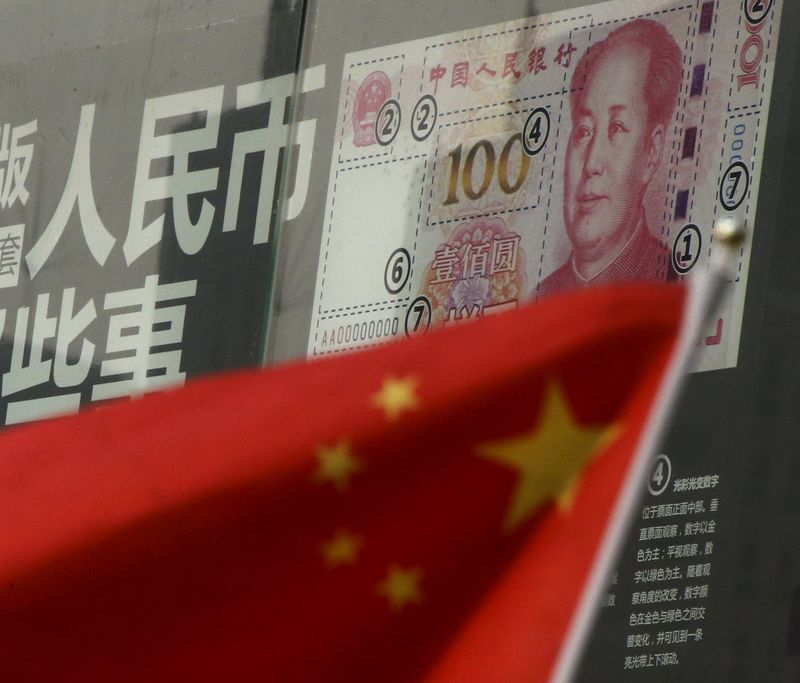Investing.com -- Most Asian currencies were a mixed bag on Tuesday as optimism over a U.S. debt ceiling deal was largely countered by fears of a more hawkish Federal Reserve, while the Chinese yuan hit a new six-month low after a much weaker daily fixing.
The yuan sank 0.4% to 7.0907 against the dollar, reaching its weakest level since early-December after the People’s Bank of China slashed its midpoint rate for the day, offering dovish signals to the market.
The central bank set a yuan fix of 7.0818 to the dollar on Tuesday, much weaker than the 7.0575 seen in the prior session. The move heralds further weakness in the yuan after it breached the psychologically important 7 level earlier this month, with the PBOC having done little to support the currency so far.
Analysts speculated that the move could be intended to weaken the currency and increase export income, especially as local demand dries up. Focus this week is on Chinese manufacturing and service sector data for May for more cues on an economic rebound, after a string of weak readings for April.
Sentiment towards China was also hit by fears of worsening ties with the U.S., after Beijing declined an invitation for a meeting between the two countries’ defense ministers.
The offshore yuan fell 0.4% to cross the 7.1 mark for the first time since November 2022.
Broader Asian currencies were somewhat mixed as markets weighed optimism over a deal to raise the U.S. debt ceiling against growing concerns that the Federal Reserve will hike interest rates further, and that economic conditions will deteriorate.
The Australian dollar fell 0.1%, while the Philippine peso sank 0.7%, largely lagging its regional peers.
The dollar hovered around two-month highs on Tuesday, with the dollar index and dollar index futures rising about 0.1% each. Hotter-than-expected U.S. inflation data last week ramped up expectations for more rate hikes by the Fed. Focus this week is squarely on U.S. nonfarm payrolls data, due on Friday, for more potential cues on monetary policy.
But some profit taking in the greenback, after a strong run of gains, aided Asian currencies. The Japanese yen rose 0.2% from a six-month low against the dollar, while the Taiwan dollar added 0.3%.
The Indonesian rupiah also added 0.3%, as it pulled back from the key 15,000 level against the greenback.
